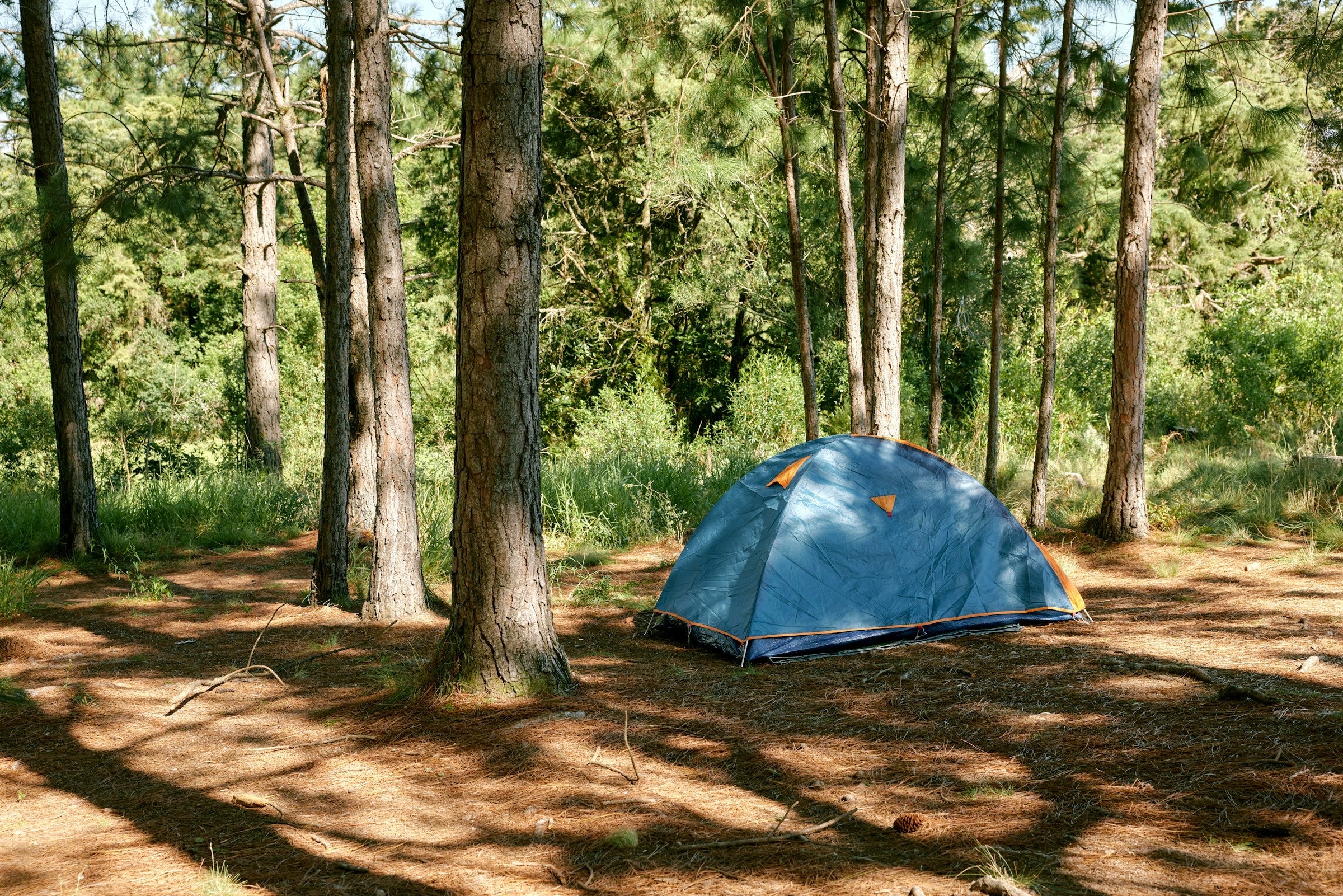
Leave No Trace
The Importance of Leave No Trace Principles: A Guide to Responsible Outdoor Ethics
Introduction
With the increasing popularity of outdoor activities such as hiking, camping, and backpacking, the impact of human activity on natural landscapes has grown significantly. Many of our favorite wilderness destinations are facing the consequences of overuse—eroding trails, littered campsites, disrupted wildlife, and polluted water sources. This is where the Leave No Trace (LNT) principles come in.
Developed by the Leave No Trace Center for Outdoor Ethics, these seven principles offer guidelines for minimizing human impact on nature. Whether you're an avid adventurer or an occasional day hiker, understanding and following these principles ensures that we preserve the integrity of our wild places for future generations.
In this blog, we will explore why Leave No Trace is crucial, what each principle entails, and how you can incorporate them into your outdoor adventures.
Why Leave No Trace Matters
The Leave No Trace principles are not just about keeping trails clean—they are about fostering a sustainable relationship between humans and nature. Here are a few key reasons why LNT is essential:
1. Protecting Wildlife
Wild animals rely on their natural habitats for survival. Improper waste disposal, feeding wildlife, and disrupting ecosystems can have severe consequences, such as making animals dependent on humans for food or exposing them to harm.
2. Preserving Natural Beauty
Trash, graffiti, and campfire scars degrade the beauty of wild spaces. By following LNT, we ensure that future visitors experience the same pristine environments that we do.
3. Reducing Human Impact
Even small actions—like walking off-trail or picking plants—can lead to soil erosion, habitat destruction, and loss of biodiversity over time.
4. Ensuring Safe and Enjoyable Experiences
Leaving behind waste or damaging natural resources can ruin outdoor experiences for others. By practicing LNT, we respect the rights of fellow adventurers.
5. Promoting a Culture of Environmental Stewardship
By setting an example and educating others about LNT, we contribute to a broader movement of environmental conservation.
The Seven Leave No Trace Principles
Now that we understand why Leave No Trace is important, let's break down each principle and how to apply it in real-world outdoor settings.
1. Plan Ahead and Prepare
A well-planned trip minimizes your impact on the environment and ensures safety.
How to Apply This Principle:
- Research your destination, weather conditions, and regulations before heading out.
- Stay on designated trails and follow park rules.
- Pack light and bring essential gear, including a map and compass.
- Travel in small groups to lessen environmental impact.
- Plan meals and waste disposal methods in advance.
Why It Matters:
Being unprepared can lead to situations where hikers create new trails, leave behind waste, or disturb wildlife because they were unaware of regulations.
2. Travel and Camp on Durable Surfaces
Sticking to designated trails and campsites protects fragile ecosystems.
How to Apply This Principle:
- Hike on established trails to avoid trampling vegetation.
- Camp at designated sites at least 200 feet from water sources.
- If no designated campsites exist, use hard surfaces like rock, gravel, or dry grass.
- Avoid walking through meadows or fragile alpine tundra.
Why It Matters:
Walking or camping on sensitive areas can damage plant life, contribute to erosion, and leave scars on the landscape that take years to recover.
3. Dispose of Waste Properly
"Pack it in, pack it out" is the golden rule of responsible outdoor ethics.
How to Apply This Principle:
- Carry out all trash, including biodegradable items like orange peels and food scraps.
- Use proper human waste disposal methods (e.g., digging a 6-8 inch cathole for solid waste or using designated restrooms).
- Dispose of soapy water by scattering it at least 200 feet away from water sources.
- Pack out used toilet paper and hygiene products.
Why It Matters:
Litter and waste contaminate water sources, harm wildlife, and degrade the outdoor experience for everyone.
4. Leave What You Find
Take only pictures, leave only footprints.
How to Apply This Principle:
- Avoid picking flowers, taking rocks, or disturbing cultural or historical artifacts.
- Do not carve into trees or rocks.
- Leave natural objects where they are for others to enjoy.
- Respect indigenous or historical sites.
Why It Matters:
When visitors remove natural elements, it disrupts ecosystems and diminishes the wilderness experience for others.
5. Minimize Campfire Impact
While campfires are part of outdoor culture, they can cause lasting damage.
How to Apply This Principle:
- Use a camp stove instead of making fires when possible.
- If fires are allowed, use existing fire rings or fire pans.
- Keep fires small and burn only small sticks that can be easily broken.
- Ensure fires are completely extinguished before leaving.
Why It Matters:
Uncontrolled fires lead to wildfires, scorched earth, and deforestation, taking decades for affected areas to recover.
6. Respect Wildlife
Give animals space and avoid disturbing their natural behaviors.
How to Apply This Principle:
- Observe animals from a distance—use binoculars instead of approaching them.
- Never feed wildlife, as it alters their natural diet and behavior.
- Store food properly using bear-proof containers when necessary.
- Keep pets on a leash or leave them at home.
- Avoid making loud noises that might disturb animals.
Why It Matters:
Interacting with wildlife can make them dependent on humans, lead to dangerous encounters, and disrupt ecosystems.
7. Be Considerate of Other Visitors
Respect nature and fellow adventurers to create a welcoming outdoor environment.
How to Apply This Principle:
- Keep noise levels down—nature is not a concert venue.
- Yield to uphill hikers on narrow trails.
- Follow group size limits to avoid overcrowding.
- Give others space and avoid blocking viewpoints.
- Keep pets under control and clean up after them.
Why It Matters:
Being courteous ensures everyone can enjoy nature without unnecessary distractions or conflicts.
How to Promote Leave No Trace
Following these principles is just the beginning—you can take it a step further by spreading awareness.
Ways to Encourage LNT Practices:
- Lead by example: Practice LNT every time you're outdoors.
- Educate others: Share the principles with friends, family, and fellow hikers.
- Join clean-up efforts: Participate in organized trail clean-ups or pick up litter when you see it.
- Support conservation groups: Donate to or volunteer with organizations that protect outdoor spaces.
- Advocate for responsible policies: Encourage local governments and park services to prioritize sustainable outdoor recreation.
Final Thoughts
Nature is a precious and finite resource, and as outdoor enthusiasts, it’s our duty to protect it. The Leave No Trace principles provide a simple yet powerful framework for ensuring that our wild spaces remain intact for future generations.
By following these seven principles, we reduce our impact, protect ecosystems, and foster a culture of respect for the environment. Whether you’re hiking, camping, or just enjoying a day in the park, every small action counts.
So next time you hit the trail, remember: leave only footprints, take only memories, and always respect nature.
